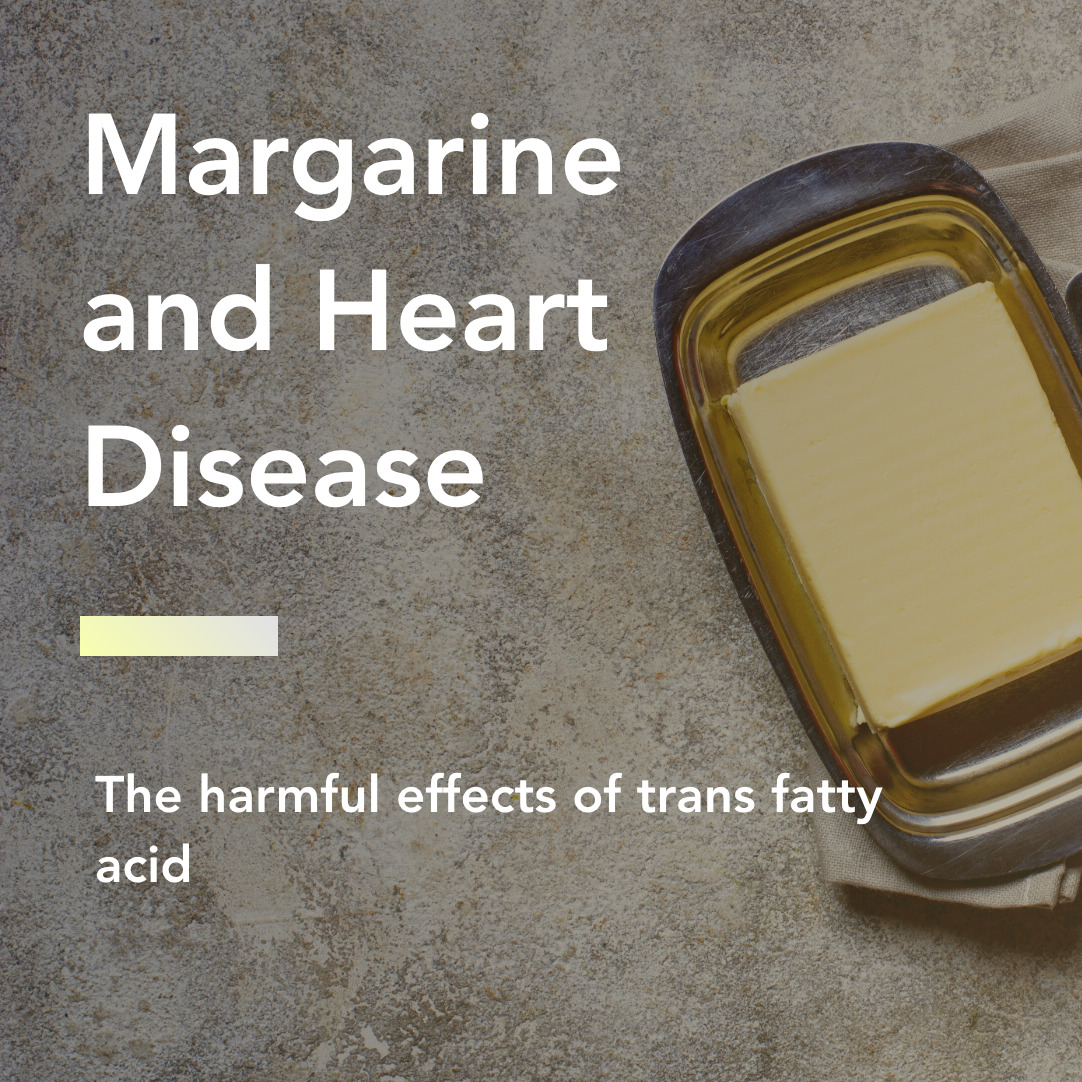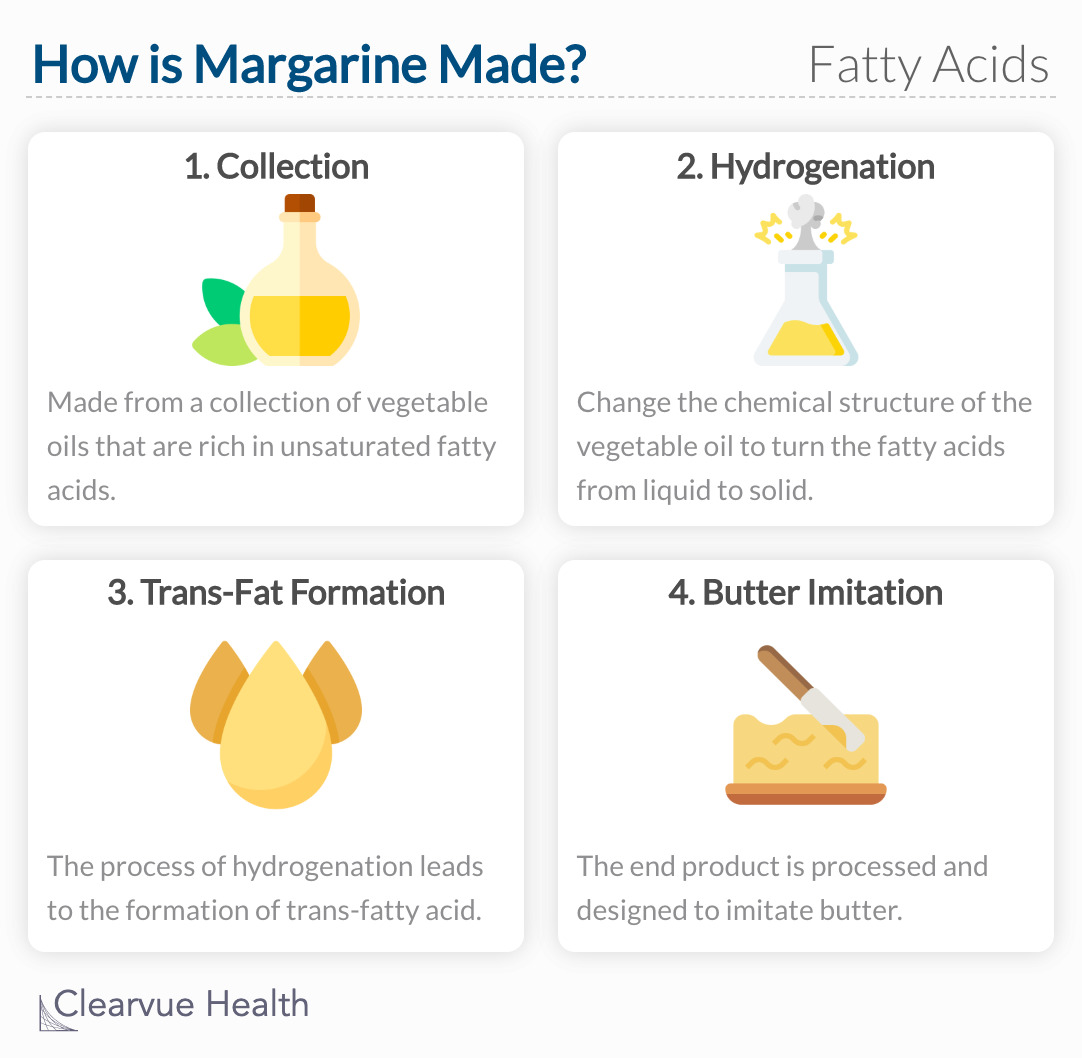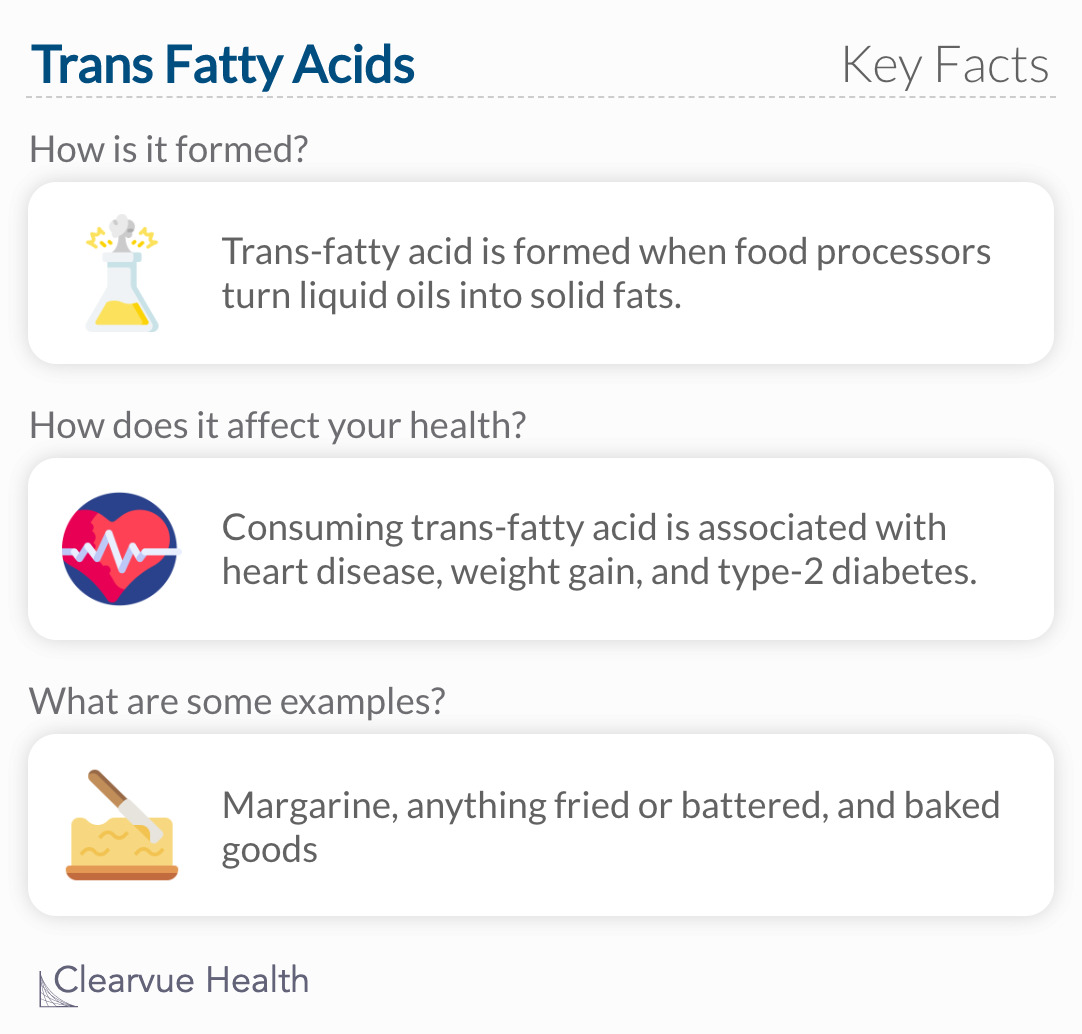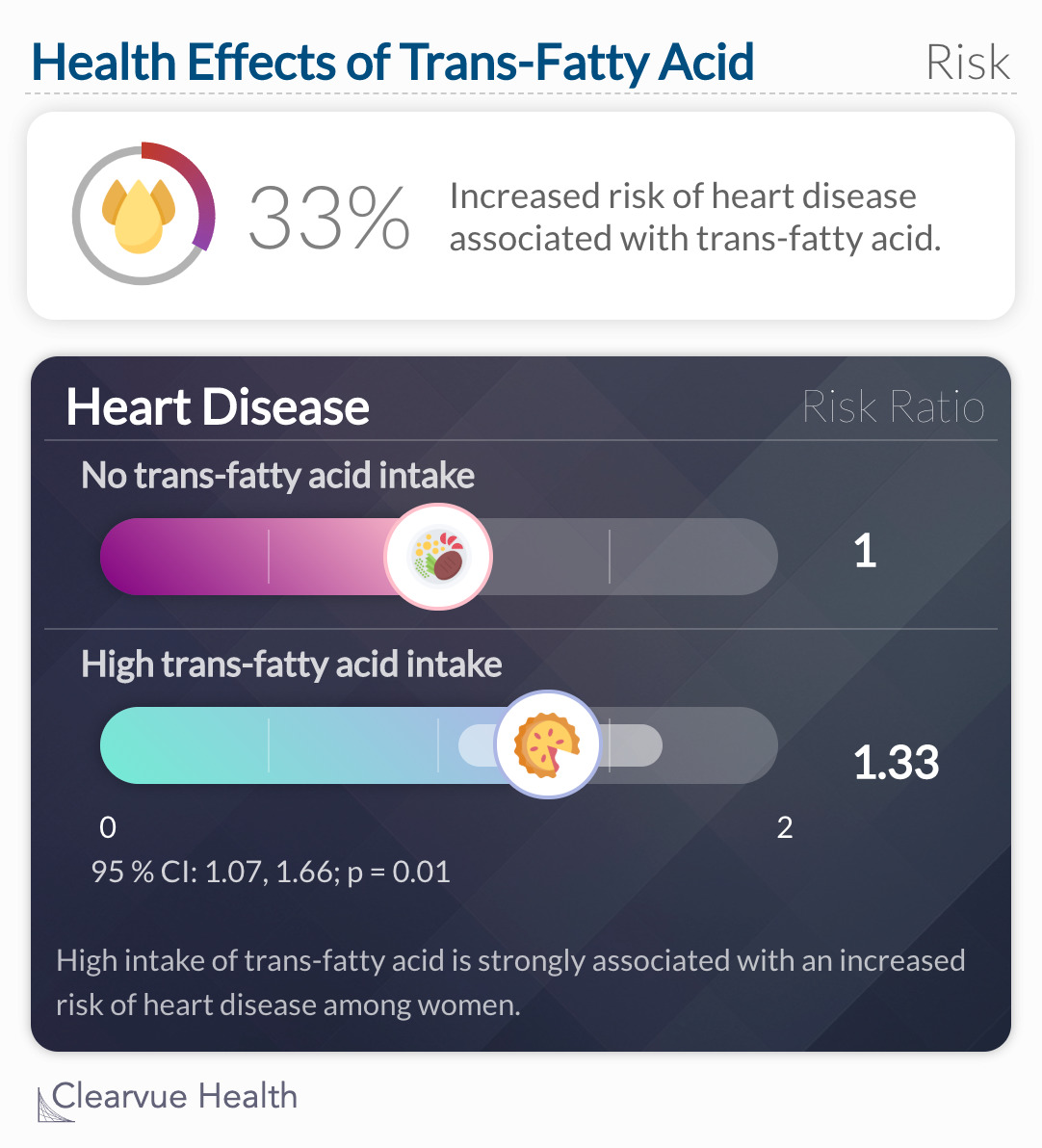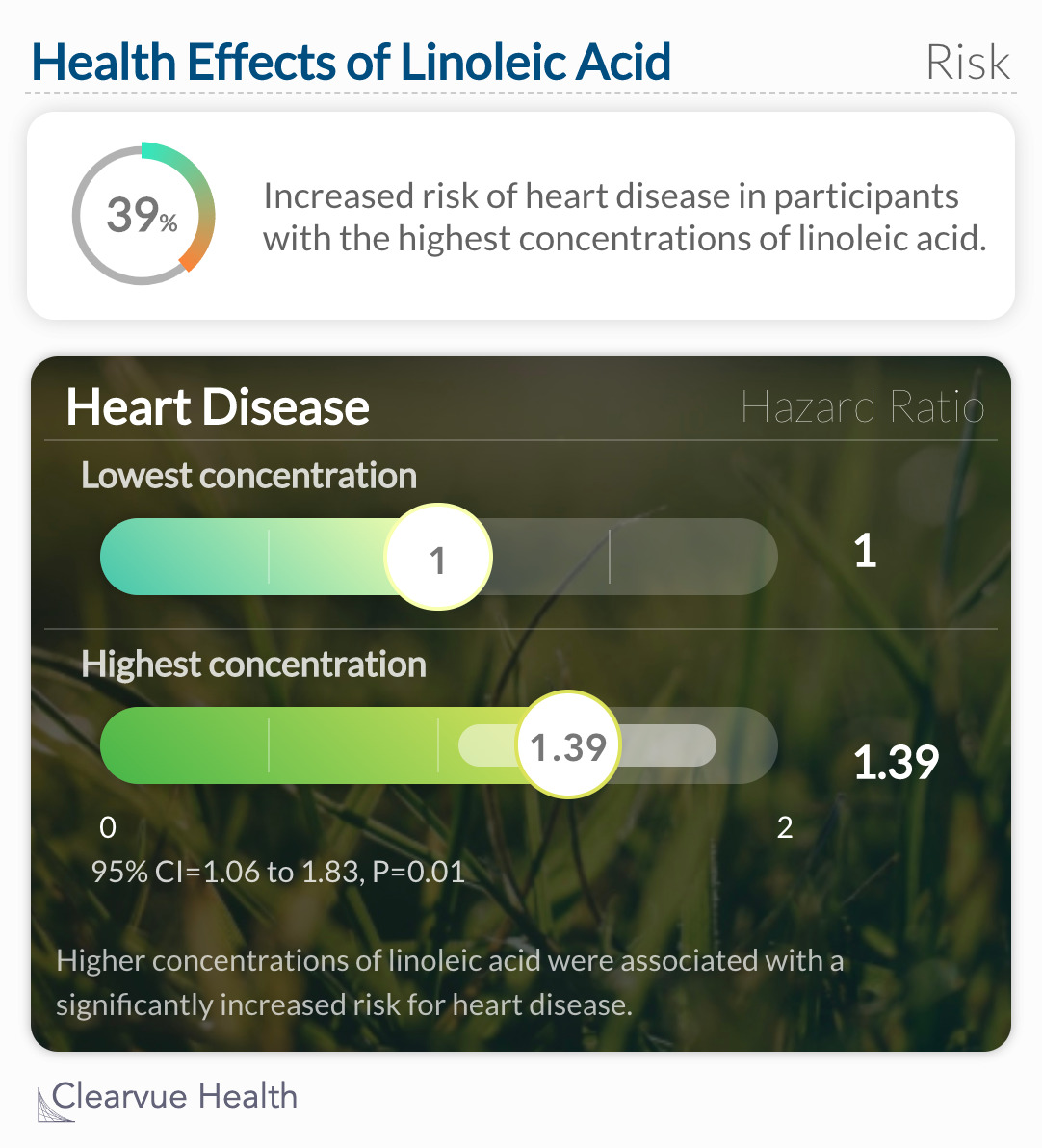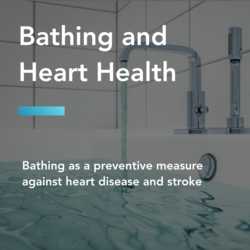The invention of margarine
As nutrition research has evolved, public health officials have pushed away from products with saturated fats like meat, cheese, and butter. In response, the food industry decided to create and sell substitutes.
Source: Intake of Saturated and Trans Unsaturated Fatty Acids and Risk of All Cause Mortality, Cardiovascular Disease, and Type 2 Diabetes: Systematic Review and Meta-Analysis of Observational Studies
One product that became popular was margarine. Margarine is a plant-based replacement for butter, made with vegetable oils. Vegetable oils are known to have unsaturated fats that are linked to a reduced risk of heart disease. In theory, this product should be healthier than regular butter, right?
Not so fast. Vegetable oils contain unsaturated fats in liquid form. To imitate butter, the fats need to be turned into solids. In the process of changing unsaturated fats into solids, trans-fatty acids are formed.
What is trans-fatty acid?
Trans-fatty acid, similar to saturated fat, increases cholesterol. This leads to a build-up in the blood vessels and increases your risk of chronic disease.
Trans-fatty acid and heart disease
In the well-known Nurses' Health Study, researchers followed 78,778 women in the United States starting in 1980. Over 20 years, researchers gathered information on heart disease incidence and diet. They documented 1,766 cases of heart disease.
Source: Dietary Fat Intake and Risk of Coronary Heart Disease in Women: 20 Years of Follow-up of the Nurses' Health Study
The study showed that the consumption of trans-fatty acids was significantly linked to an increased risk of heart disease. Researchers collected comprehensive data from a large sample over a significant period of time. These study parameters boost the power of the results.
It is important to note that the study only included women in the United States. However, a collection of similar studies in men and other populations also yielded results that suggest an increase in heart disease due to trans-fatty acid intake.
Source: Association of Dietary, Circulating, and Supplement Fatty Acids With Coronary Risk A Systematic Review and Meta-analysis
Linoleic acid
We've established that the trans-fatty acid in margarine is associated with heart disease risk. Looking even further, researchers measured the risk of heart disease between different trans-fatty acid subtypes. One, in particular, stood out: linoleic acid.
The linoleic acid is found in oils made from soybeans, sunflowers, and corn. Soybean oil is used in all of the most popular margarine brands.
Source: Plasma Phospholipid Trans-Fatty Acids Levels, Cardiovascular Diseases, and Total Mortality: The Cardiovascular Health Study
Scientists evaluated 2742 adults in the Cardiovascular Health Study. They took samples and measured the concentration of linoleic acid in their blood, and compared this data with incidence of heart disease.
Researchers positively associated linoleic acid with heart disease risk at high concentrations. It was also associated with the risk of total mortality and cardiovascular mortality. In other words, the higher the concentration of linoleic acid, the stronger the association with heart disease risk.
The bottom line
We deserve to know what we are putting into our bodies. Margarine not only contains trans-fatty acid, but it also contains one of the most concerning types of trans-fatty acid. Substituting butter or other animal products seemed like a healthy choice until trans-fatty acids were identified. Margarine, along with other processed food, may solve one health problem while creating another.
